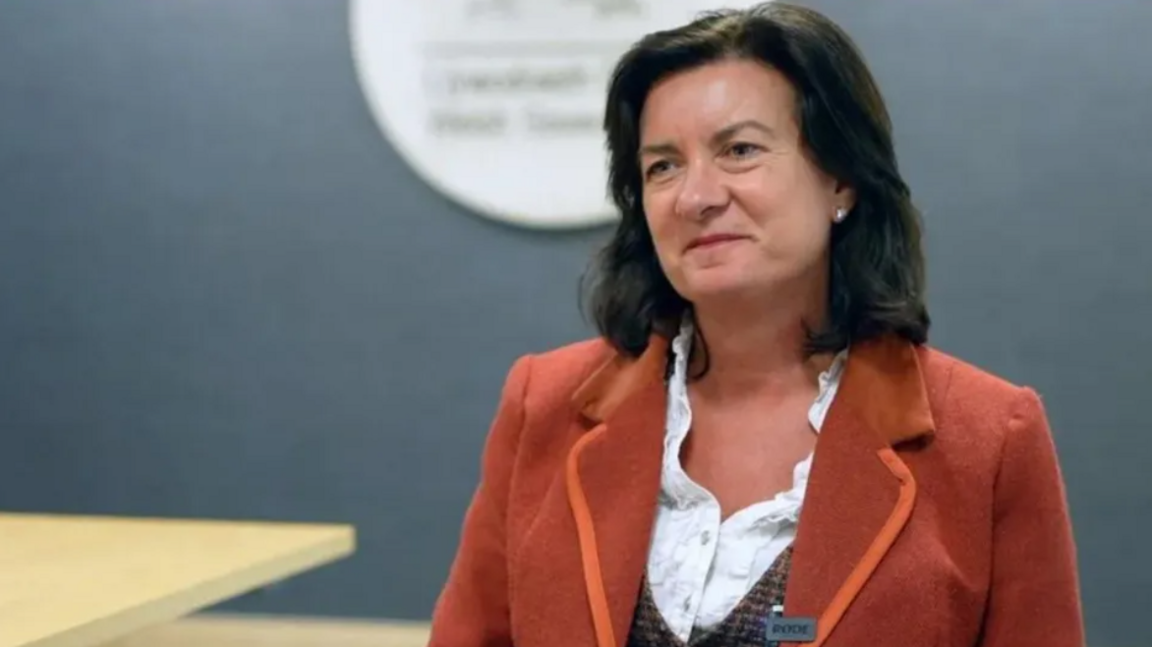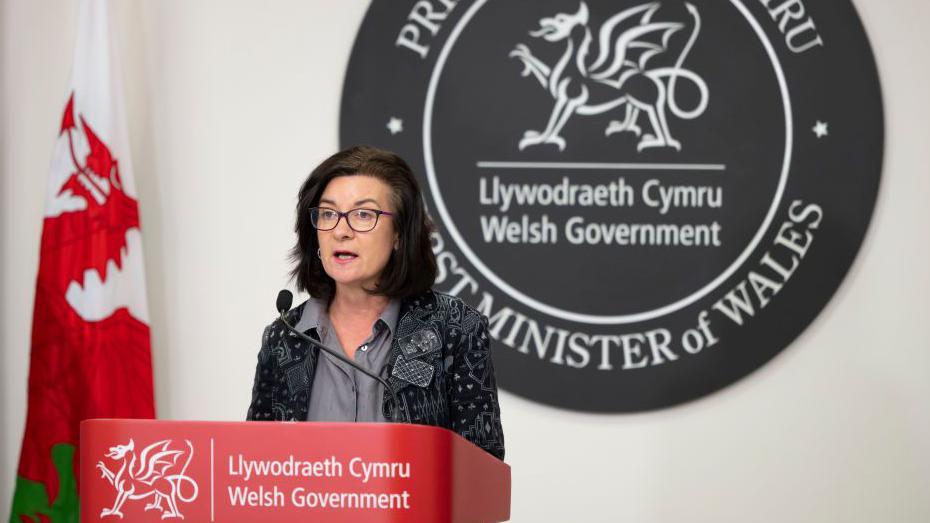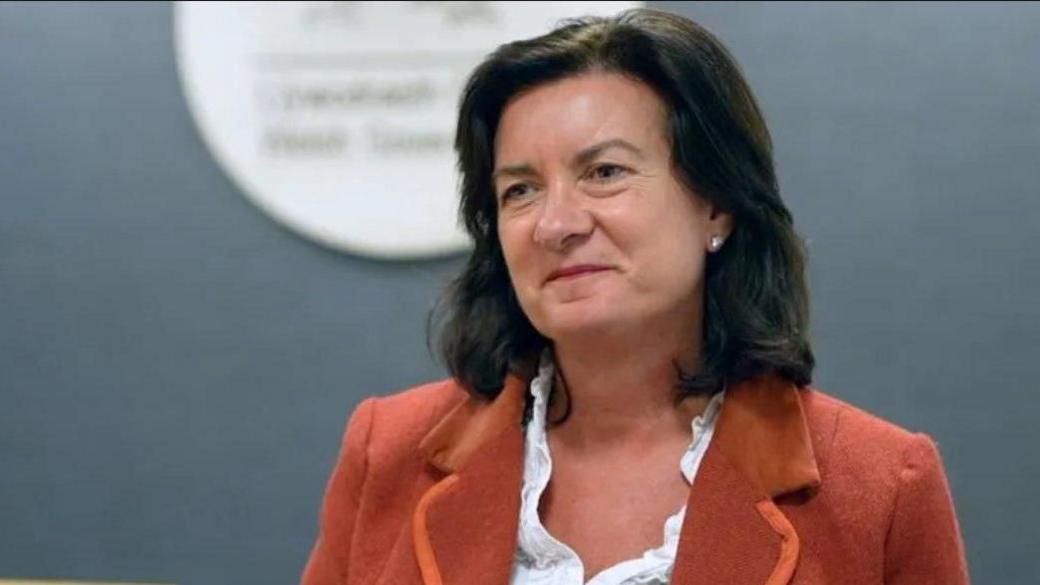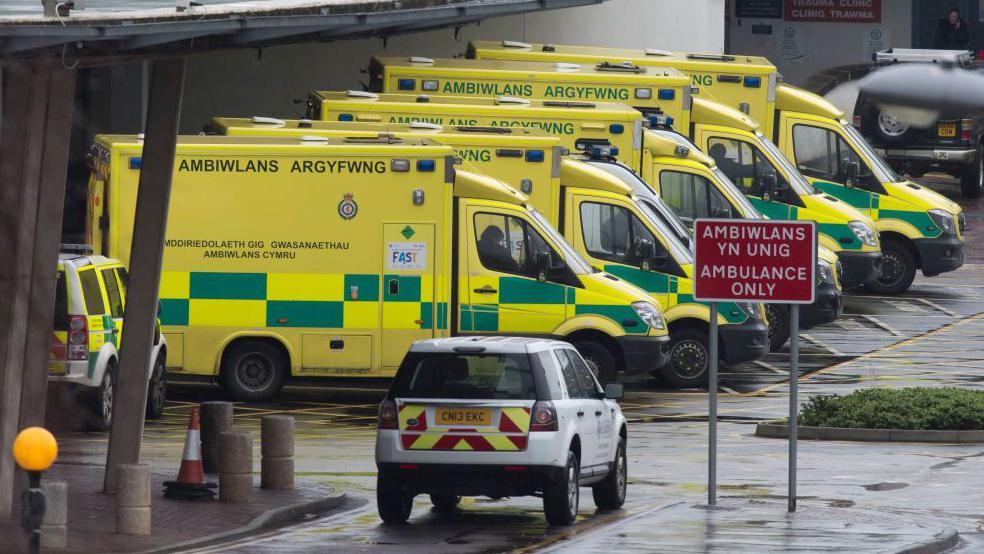How was Eluned Morgan's time as health minister?

Eluned Morgan will be Wales' first female first minister
- Published
Eluned Morgan is set to become Wales' third first minister in the past four months, following on from a three-year stint in charge of the country's NHS.
She was appointed health minister in May 2021, at the end of the second Covid wave.
By then, about two-thirds of people in Wales had received their first vaccine, meaning the virus was thankfully becoming less of an immediate threat to life.
However, the enormous knock-on effects were becoming alarmingly clear.
Exhausted NHS staff faced record waiting lists, which had grown dramatically due to the postponement of many planned treatments.
The pressures were set to intensify as patients who might have delayed seeking care due to fear of catching Covid began to flood back into the system.
It's hard to think of a more difficult set of circumstances for an incoming health minister.
Early on, Ms Morgan recognised the scale of the challenge and declared the "gargantuan task" of reducing waiting lists would be a top priority.
She later introduced a plan with several targets, but the truth is they've all been missed or are on track to be missed:
Nobody should be waiting longer than a year for their first outpatient appointment by the end of 2022. Yet, 18 months on, there were still 70,299 cases where people had been waiting longer
No patients should be waiting longer than two years for treatment in most specialties by March 2023. As of May, there were still 22,455 people waiting longer, a figure that has started to rise again after two years of improvement
No patients should be waiting longer than one year in most specialties by spring 2025. In May, there were 154,872 cases where people had been waiting more than a year. Far from being on a trajectory to hit this target, the latest statistics show this figure has been rising over the most recent four months

Strikes in the NHS were a recurring theme of Ms Morgan's tenure, but resolutions have now been reached
Beyond failing to achieve her goals on waiting lists, Ms Morgan also grappled with some huge problems in the NHS in north Wales.
She put Betsi Cadwaladr health board into special measures for the second time in its history, effectively forcing the independent members of the board to resign. This resulted in an almighty row.
However, she’s arguably had more success in other aspects of her brief.
Amid huge health board overspends due to rising drug and energy costs, Ms Morgan successfully argued in Cabinet for hundreds of millions of pounds from other Welsh government departments to be redirected to the NHS.
Despite the NHS being severely disrupted by a series of strikes for much of her tenure, she eventually struck pay deals with nurses, ambulance staff, and more recently, doctors.

Eluned Morgan has been announced as the new first minister in Wales
But will she think she's achieved enough?
As a politician who likes to be thought of as a "disruptor," Ms Morgan, shortly after her appointment, told me she was keen to "shake up" the NHS.
She became known, for example, for turning up unannounced at A&E departments.
I'm also told she once famously visited a surgical unit that had been given extra cash to reduce waiting list backlogs but found little activity going on.
Unimpressed, she gave health board bosses a piece of her mind.
Yet, the way the NHS is run and how it performs is not dissimilar now to when she took over and the demand on it, from a relatively old, poor, and sick population, continues to grow.
Being in charge of health is, undoubtedly, a good training ground for a future first minister.
You're responsible for spending more than half of the Welsh government's budget, in charge of a service that employs tens of thousands of staff and affects countless lives.
The decisions you have to make are often tough ones.
In the spring, Ms Morgan gave very strong hints that the job could be taking its toll, suggesting that she might not want to continue the job in the new first minister's cabinet.
Yet continue she did and is now on the verge of getting the top job herself.
Related topics
- Published24 July 2024

- Published8 September 2024

- Published18 July 2024
